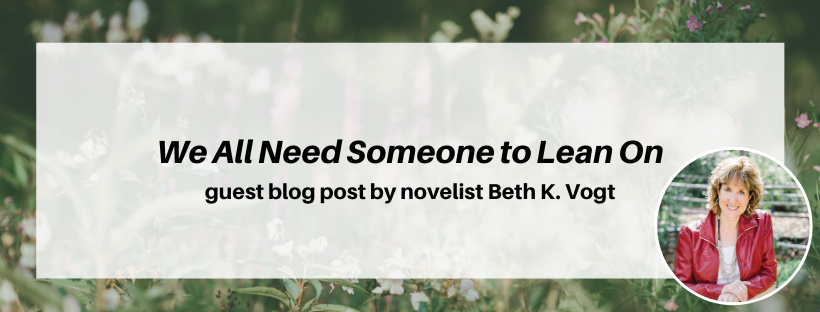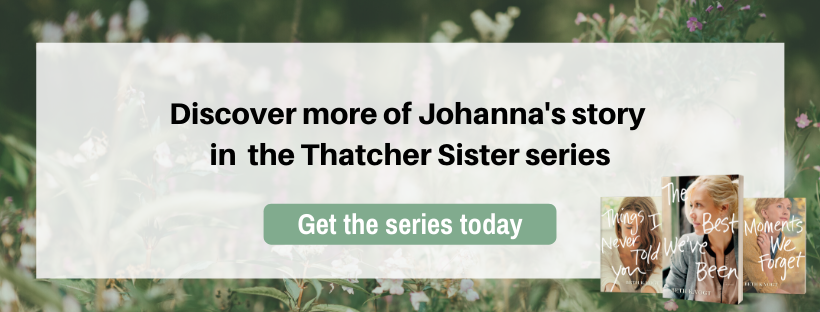
In The Best We’ve Been, book three in the Thatcher Sisters series by Beth K. Vogt, Johanna Thatcher’s tough exterior hides deep wounds. She hasn’t tended toward relying on others, but new life changes may leave her little choice but to accept help. Read on to see what Beth shared about the importance of letting people in and the value of leaning on others.
Self-reliance is an admirable character quality, right?
Some people are naturally independent. They know what they want out of life and make detailed plans to accomplish their goals without help from anyone else.
But sometimes we develop self-reliance because we’ve been hurt by the painful actions or accusations of family or friends. We decide we don’t need anyone and we push people away. Going it alone? It’s less painful than being in relationship with others—or so we believe.

Johanna Thatcher, the heroine in The Best We’ve Been, is quite content with her carefully constructed life in Colorado. She’s satisfied with a long-distance relationship, with her career, and with her well-honed ability to tell her younger sisters how they should live their lives.
Readers met Johanna in book one of my three-book series, but she doesn’t come center stage until the final novel. At first glance, Johanna seems like nothing more than a control freak. But I also weave in glimpses of Johanna’s story—both present day and past—to explain her super-size self-assurance.
As I threw multiple complications at Johanna—losing a promised promotion, discovering her fiancé cheated on her—I also undermined her self-confidence. Her independence hid emotional pain that lingered from her childhood. Johanna believed her parents preferred her twin sisters over her. Because of this, Johanna gave up something she loved because she didn’t think anyone cared.

Healthy self-reliance is fostered when we have the skills to accomplish our goals. We can design a website. Create art. Launch a business. But unhealthy self-reliance occurs when we shove people away—acting as if we don’t need anyone else—because we’re afraid we’ll be betrayed or abandoned.
All relationships are risky because they require vulnerability, require that we share honestly about who we are. Avoiding emotional intimacy with family and friends offers us nothing but loneliness in the end.
The coronavirus pandemic has magnified the harsh reality of how isolation negatively impacts us. We’ve been cut off from normal, nourishing interactions with others. The chance to meet friends for coffee. To celebrate birthdays with family. To console a grieving friend with a hug.

Yes, we need to recognize that there are different personality types—those of us who express inner thoughts more easily and those of us who are natural listeners. But relationships are a matter of give and take . . . and time. We need to consider this when we meet an overwhelmingly self-reliant person. Instead of presuming they don’t need a friend, perhaps we could pause and consider why someone hesitates to connect with us. Maybe there’s heartache behind the virtual wall they’ve erected, as there was for Johanna.
Let’s wait before we jump to a possible wrong conclusion about those who, at first glance, seem to be able to take care of themselves and even offend us with their bossiness. See if a little care and concern from you might prompt them to open up. It’s always good to remember the best relationships take time.


